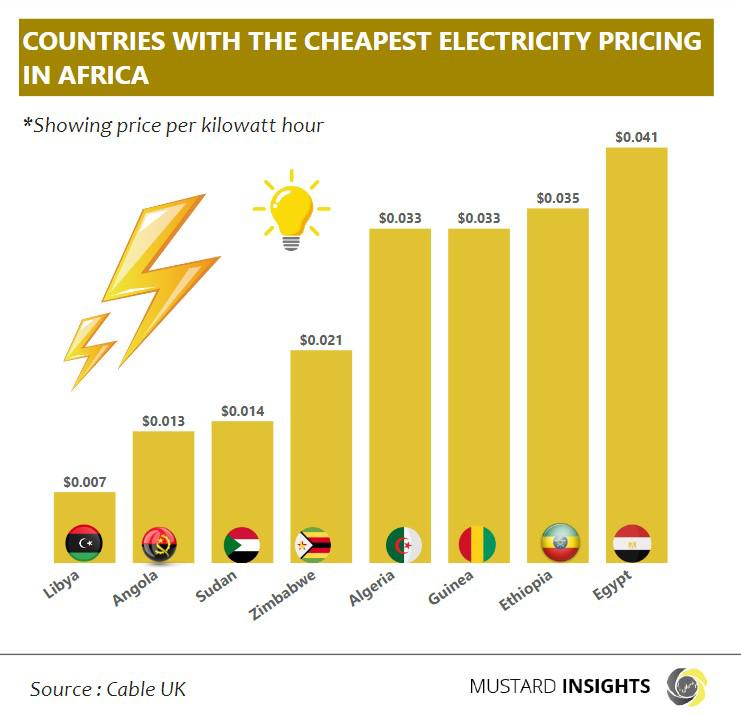Over 572 million people in Africa live without access to electricity. 51.5% of people in Sub-Saharan Africa have access to electricity, in remarkable contrast to North Africa, where up to 99.6% of the population enjoys electricity access, and the rest of the world where over 89% do.

Electricity is an essential part of daily life in the world today, but its availability in Africa has historically been suboptimal. According to statistics from the International Energy Agency, over 572 million people in Africa live without access to electricity. 51.5% of people in Sub-Saharan Africa have access to electricity, in remarkable contrast to North Africa, where up to 99.6% of the population enjoys electricity access, and the rest of the world where over 89% do. Although it has been set as a goal by various international agencies, various sub-Saharan countries are still struggling to meet electricity demand.
Secure and available energy reduces the cost of doing business, increases economic potential, and creates jobs. Egypt, Algeria, Tunisia, Ghana, and South Africa are a few of the countries on the continent that provide 100% access to electricity to its citizens, and as such, have recorded marginal growth and have also attracted significant foreign investment.
Apart from electricity availability, there is also the issue of affordability. There exists the concept of fuel poverty: when households have to spend more than 10% of their net income on energy and power. Can citizens afford electricity without falling into fuel poverty? This article briefly looks at countries with the cheapest electricity pricing per kilowatt in Africa, according to data provided by Cable UK.
What Countries Provide Cheap Electricity?
Libya has the cheapest electricity price in Africa, going for $0.007 per kilowatt hour. Followed by Angola and Sudan which offer prices of $0.013 and $0.014 respectively per kilowatt hour. Zimbabwe offers the fourth cheapest on the list going for $0.021 per kilowatt hour.
Alegria and Guinea both offer a similar price of $0.033 per kilowatt hour, although Algeria generates significantly more electricity that Guinea. With a 99.8% national electricity access rate – 99.6% in rural areas and 99.9% in urban areas. Natural gas accounts for 96% of the country’s installed capacity with the remaining 4% sourced from a combination of oil, solar, hydropower and wind. Ethiopia offers rates of $0.0035 per kilowatt-hour.
While electricity in Egypt is pricier than the other countries stated, it is the country with the best access-to-affordability ratio. The country’s electricity is priced at $0.041 per kilowatt hour. The Egyptian electricity market is composed of government-owned utilities under the direct management of the Egyptian Electricity Holding Company (EEHC); three independent power producer owned projects; one wind-generating company under the direction of the New Renewal Energy Authority and; 12 small isolated and/or semi-connected independent service providers in either generation or distribution. These are all used to supply Egypt’s population with 100% electricity in both rural and urban areas.
Takeaway
Sub-Saharan governments need to do more to provide widespread affordable electricity access to their citizens. The energy trilemma demands that there must be a balance between energy affordability, security, and environmentally sustainable. Presently, most Sub-Saharan countries are markedly subpar in terms of security, but electricity is affordable. As they work on expanding access, it is imperative that they keep electricity prices low and energy affordable.
- Published: 24th October, 2022
Thoughts?
We won't share your email address. All fields are required.
